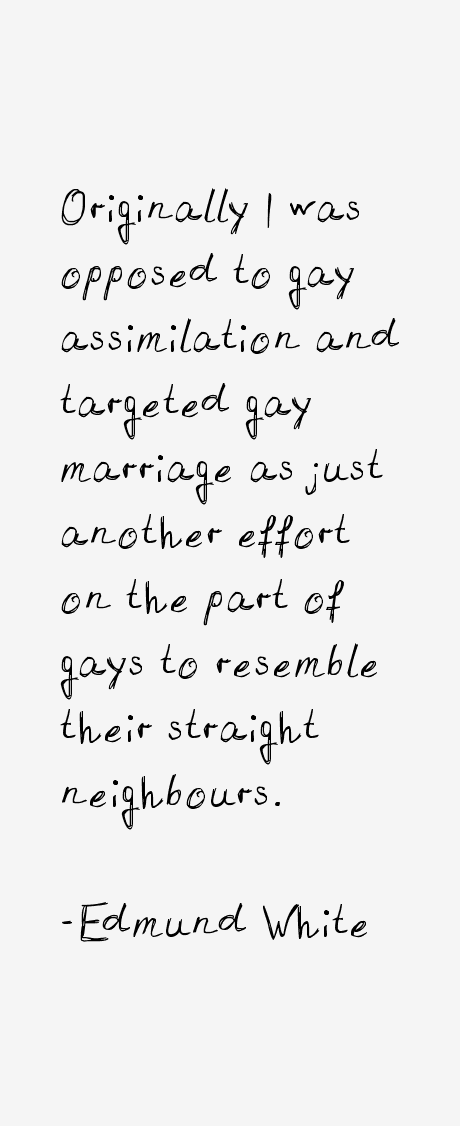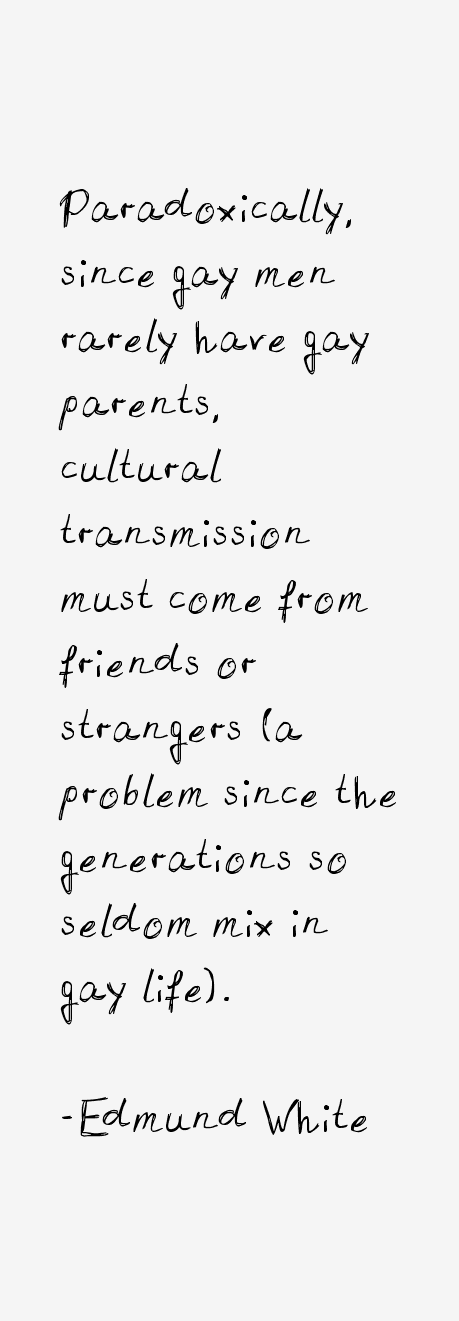Edmund White Quotes & Sayings (Page 10)
Edmund White quotes and sayings page 10 (novelist). Here's quote # 91 through 100 out of the 108 we have.
“My mother was terribly invasive, all in the name of psychiatric honesty. It was a bad thing in some ways, but I do think it had the effect of making me interested in 'the truth' as a writer - more than beauty, more than having a shapely story.”
“Nobody in France would ever say 'He's a Jewish novelist' or 'She's a black novelist,' even though people do write about those subjects. It would look absurd to a French person to go into a bookstore and see a 'Gay Studies' section.”
“'One Hundred Years of Solitude' is a masterpiece because it is an episodic novel that has a rigorous form - an unprecedented combination. From the very beginning we know the town of Macondo will endure only a century, so there is a limit to the length of the narrative.”

“Originally I was opposed to gay assimilation and targeted gay marriage as just another effort on the part of gays to resemble their straight neighbours.”

“Paradoxically, since gay men rarely have gay parents, cultural transmission must come from friends or strangers (a problem since the generations so seldom mix in gay life).”

“Readers of novels often fall into the bad habit of being overly exacting about the characters' moral flaws. They apply to these fictional beings standards that no one they know in real life could possibly meet.”
“Reading the several thousand pages of Christopher Isherwood's complete journals is an instructive corrective to the prissiness of reading fiction. Isherwood had faults that we'd say were unforgiveable in a novel (he was careful to distance himself from these in his autobiographical fiction).”

“Since, in the best Southern tradition, I was named Edmund Valentine White III, sometimes when people look up my books on Amazon they find 'Chocolate Drops from the South' by my grandfather.”
“The French are pretty thin-skinned. The few times I mentioned a French writer in 'City Boy,' the relatives would ring up in high dudgeon. I once wrote a mocking review of Marguerite Duras in the 'New York Review of Books,' and good friends of mine in France got very angry.”
“The great triumph of the Sixties was to dramatize just how arbitrary and constructed the seeming normality of the Fifties had been. We rose up from our maple-wood twin beds and fell onto the great squishy, heated water bed of the Sixties.”
Edmund White Quotes Rating
No Ratings Yet
Leave A Comment
























